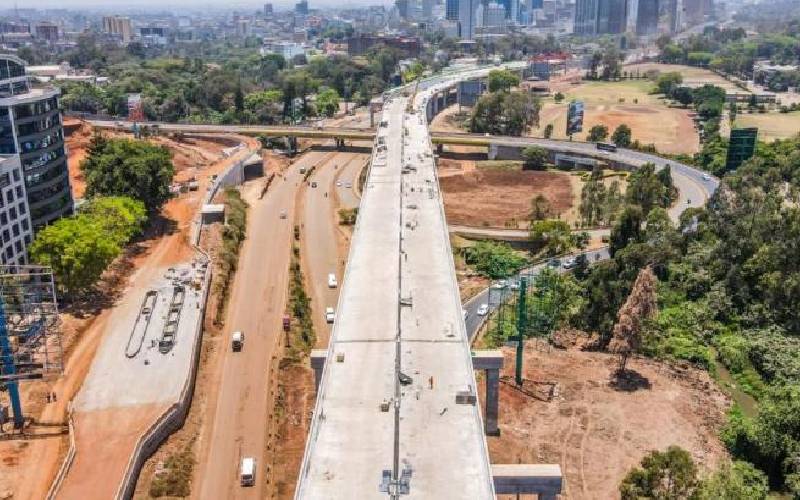×
The Standard e-Paper
Stay Informed, Even Offline

A section of Waiyaki way around Museum hill and Waiyaki way. [Courtesy]
It will take a traveller in Ruaka about 30 minutes to get to the Jomo Kenyatta International Airport (JKIA) once the Nairobi Expressway is completed.